Foreign News
How Trump pulled off an incredible comeback
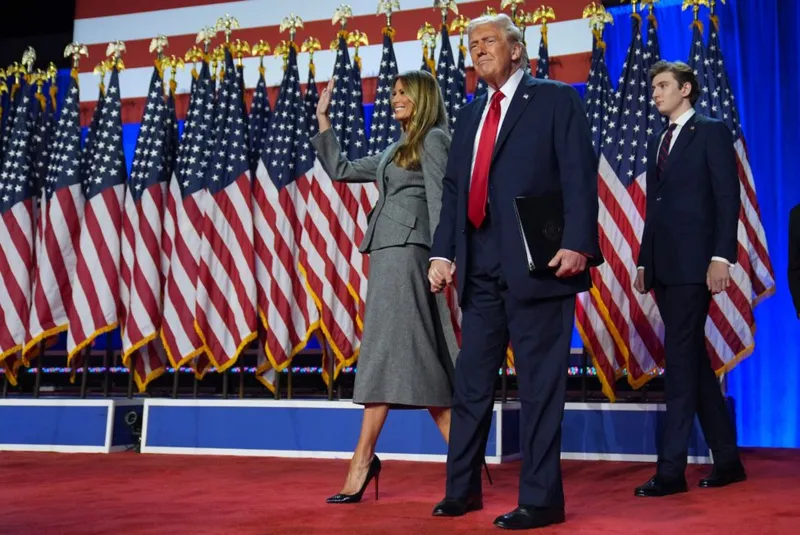
This is surely the most dramatic comeback in US political history.
Four years after leaving the White House, Donald Trump is set to move back in, after millions of Americans voted to give him a second chance.
The election campaign was one for the history books: he survived two assassination attempts and his original opponent President Joe Biden dropped out just months before election day.
Although final votes are still being counted, the majority of Americans in key battleground states chose to vote for him, with many citing the economy and immigration as a chief concern.
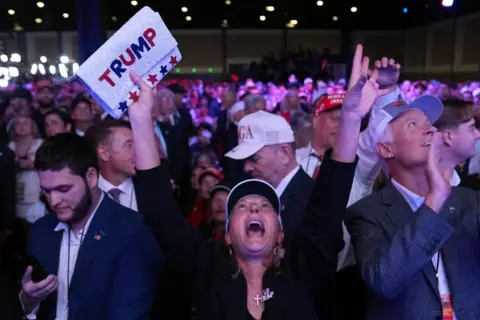
His triumph comes after a spectacular fall. He refused to accept the results of the 2020 election, which he lost to Biden, and his role in trying to overturn the election results to stay in office is still being scrutinised today.
He faces charges for allegedly inciting the violent attack on the US Capitol on the 6 January 2021. And he will also make history as the first sitting president to have been convicted of a felony, after being found guilty of falsifying business records.
It’s not hard to see why he is a deeply polarising figure.
Throughout the campaign, Trump used incendiary rhetoric – making crass jokes and threatening vengeance against his political enemies.
His message on the economy touched a chord
Few people have a middle ground when it comes to Trump. Most of the voters I spoke to during the course of this campaign said they wished he would “shut his potty mouth” – but they were able to look past it.
Instead, they focused on the question he asked at every rally. “Are you better off now than you were two years ago?”
So many people who voted for Donald Trump told me again and again that they felt the economy was much better when he was in office and they were sick of trying to make ends meet. Although much of the cause of inflation was due to outside forces such as the Covid-19 pandemic, they blamed the outgoing administration.
Voters were also deeply concerned about illegal immigration which had reached record levels under Biden. They usually didn’t express racist views or believe that migrants were eating people’s pets, as Trump and his supporters had claimed. They just wanted much stronger border enforcement.
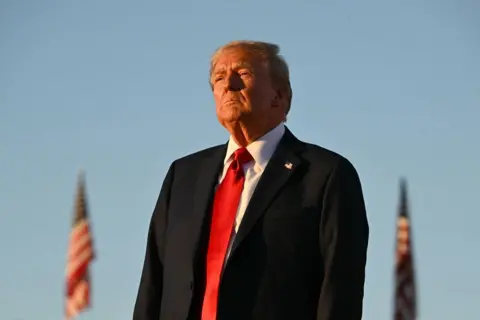
‘America first’ for a second Trump term
“America first” was another one of Trump’s slogans that really seemed to strike a chord with voters. All over the country I heard people – on the left and right – complaining about billions of dollars being spent on supporting Ukraine when they thought that money would be much better spent at home.
In the end, they just couldn’t vote for Harris, who served as Biden’s vice-president for four years. They believed it would be more of the same, and they wanted change.
It is perhaps one of the ironies of this election that the candidate who most represented change was himself in power just four years ago. But there are several differences between then and now.
When he first came into power in 2016, he was a political outsider, and, at least for a while, he surrounded himself with veteran political advisers and staff who showed him the ropes and constrained his actions. Now he doesn’t seem that interested in playing by the rules of the game.
Many of these same advisers and staff have spoken out – calling him a “liar”, a “fascist” and “unfit”. They have cautioned that if he surrounds himself with loyalists, which he is expected to do, that there will be no one to restrain him from his more extreme ideas.
When he left office, he faced a litany of criminal charges related to his role in the Capitol riots, how he handled documents pertaining to national security, and hush money payments to a porn star.
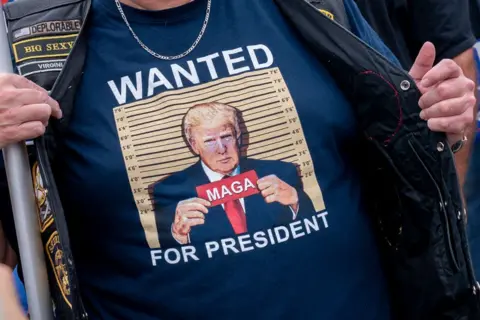
But since the Supreme Court ruled that the president has total immunity from prosecution for official acts in office, it will be an uphill battle for any prosecutor to charge him during the next administration.
And as president, he could instruct his justice department to drop the federal charges against him relating to the 6 January riots so he doesn’t have to worry about a jail sentence. At the same time, he could pardon hundreds of people sentenced to prison for their part in the Capitol Riots.
In the end, voters were presented with two versions of America.
Donald Trump told them that their country was a failing nation that only he could Make Great Again.
Meanwhile, Harris cautioned that if Trump was elected, American democracy itself would face an existential threat. That remains to be seen. But what Trump said himself during the campaign has not exactly assuaged people’s fears.
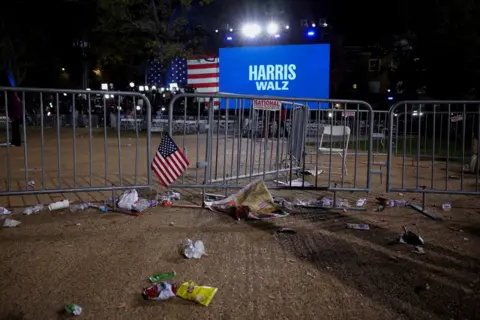
He has heaped praise on authoritarian leaders like Russia’s Vladimir Putin and North Korea’s Kim Jong Un, whom he said were “at the top of their game, whether you like it or not”.
He has talked about trying to silence critics in the press. Just days before the election, he also made comments that implied he wouldn’t mind if members of the media were killed.
And he has continued to amplify conspiracy theories and unfounded claims of election fraud – even though the election ultimately led to his victory.
Now, voters will find how much of what he said during the campaign was just loose talk – “Trump being Trump”. And remember: it’s not just Americans who have to confront the reality of a second Trump term.
The rest of the world will now discover what “America First” really means. From the global economic consequences of 20% tariffs that he has proposed on US imports to the wars in Ukraine and the Middle East that he has vowed to end – regardless of which side wins.
Donald Trump did not manage to implement all of his plans in his first term. Now with a second mandate and significantly less encumbered, America, and the world, will see what he can really do.
[BBC]
Foreign News
Fourth tourist dies of suspected methanol poisoning in Laos

Australian teen Bianca Jones has become the fourth tourist to have died in a suspected mass poisoning in Laos.
The 19-year-old’s family confirmed her death to the media on Thursday. Hours earlier, the US State Department told the media that an American man died in the tourist town of Vang Vieng.
Two Danish women, aged 19 and 20, also died last week in Laos, Danish authorities confirmed, declining to share more due to confidentiality concerns.
The deaths remain under police investigation, but news reports and testimonies online from other tourists suggest they may have consumed drinks laced with methanol, a deadly substance often found in bootleg alcohol.
Jones’s friend Holly Bowles is in hospital on life support, while a British woman is also reportedly in hospital.
New Zealand’s foreign ministry told local media on Thursday that one of its citizens was also unwell from suspected methanol poisoning. It is unclear how many more people have fallen ill.
Australian Prime Minister Anthony Albanese said the department of foreign affairs had confirmed Jones’s death.
“Our first thoughts in this moment are with her family and friends who are grieving a terrible and cruel loss,” Albanese said on Thursday afternoon.
“This is every parent’s very worst fear and a nightmare that no one should have to endure.”
He said he hoped Ms Bowles, who is currently at Bangkok Hospital, would recover well.
The US State Department said it was “closely monitoring” the situation with regards to the American victim, adding that it was up to local authorities to determine the cause of death.
Australian, New Zealand and UK authorities have each warned their citizens to be careful of methanol poisoning when consuming alcohol in Laos.
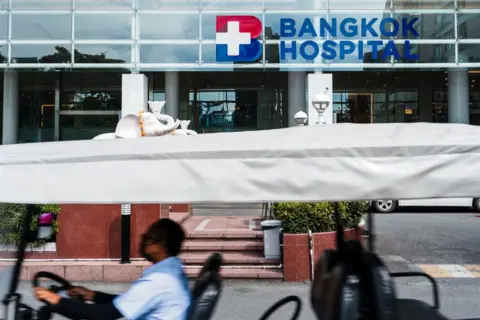
Nana Backpacker Hostel, where the two Australian women stayed in Vang Vieng, told the BBC that it was closed for police investigation.
The hostel’s manager told the Associated Press that the two women were among more than 100 guests who received free shots of Lao vodka from the hostel. The pair then headed out for the night, he said, adding that no other guests reported health issues.
The manager said he hoped the investigation would clear the hostel’s name, but said they have stopped giving free shots for now.
In a statement to Australian newspaper the Herald Sun, Jones’s family expressed their “deepest gratitude for the overwhelming support, love, and prayers we’ve received from across Australia”.
“We kindly ask for privacy as we navigate through our grief and begin to heal,” the statement said.
Unlike ethanol, the key component of alcoholic beverages, methanol is toxic to humans. Bootleg liquor producers sometimes add it to their drinks, however, as a cheap way to increase alcohol content.
Earlier this year, at least 57 people in India died after consuming methanol-laced liquor. Similar cases of mass poisoning have also been reported across the world, from the Philippines to Peru.
Vang Vieng is a small riverside town in central Laos, and a hub for backpackers in Southeast Asia.
[BBC]
Foreign News
MSF halts work in Haitian capital over attacks
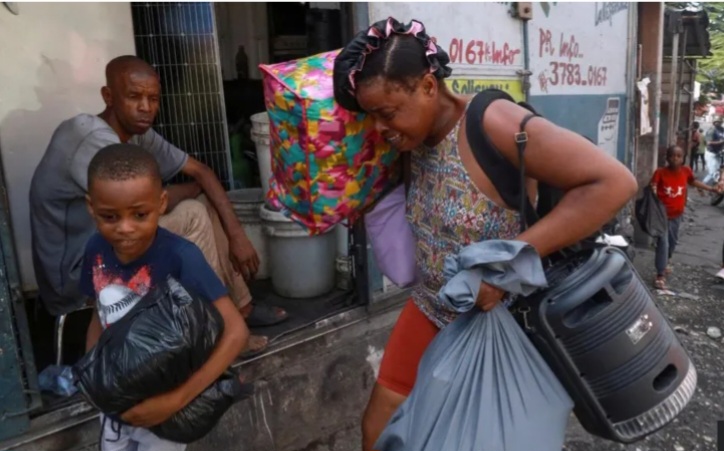
The humanitarian medical organisation Médecins Sans Frontières (MSF) has suspended its operations in the Haitian capital, Port-au-Prince, following a violent attack on its staff and the alleged killing of two patients they were treating by Haitian police officers.
The incident took place last week as violence continued to worsen in the country.
An estimated 25 people were killed in Port-au-Prince on Tuesday alone in what police say was a foiled attempt at a gang invasion of a wealthy neighbourhood.
Politically, the situation also remains critical with interim Prime Minister Garry Conille fired this month by the country’s ruling council – less than six months after he took office.
MSF says that on 11 November one of its ambulances carrying three young men with gunshot wounds was stopped by Haitian law enforcement officers.
Apparently supported by a paramilitary self-defence group, the men attacked the vehicle, removed two of the patients, took them outside hospital grounds and executed them.
The humanitarian group denounced the violence in a strongly worded statement last week, saying their personnel had been tear-gassed and held against their will for several hours.
While that incident appears to have been the final straw for MSF in Port-au-Prince, at least for the time being, it was not the only recent example of extreme aggression against their staff.
The announcement comes amid a worsening climate of violence in Haiti with some 25 suspected gang members killed in the capital on Tuesday.
The police say that residents helped officers to fight off an attempted attack on the upscale suburb of Pétion-Ville.
The neighbourhood was cordoned off after residents barricaded streets, some armed with machetes and makeshift weapons, in an apparent effort to prevent a gang invasion.
[BBC]
Foreign News
Living in Delhi smog is like watching a dystopian film again and again
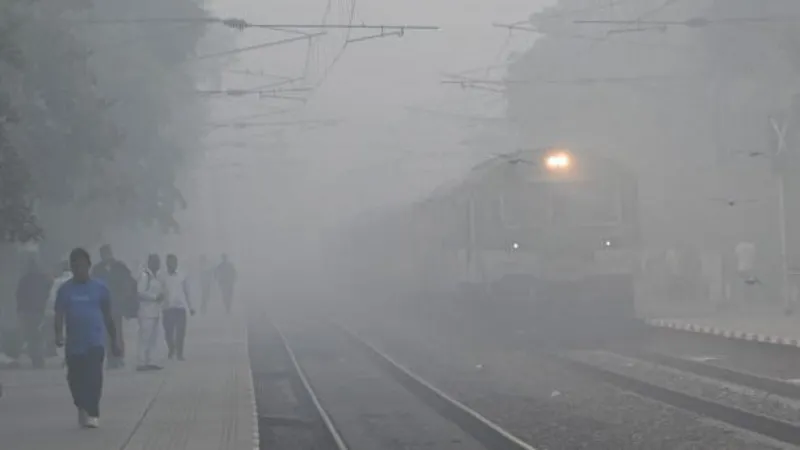
Winter has come to Delhi and with it, a familiar sense of gloom. The sky here is grey and there is a thick, visible blanket of smog.
If you stay outdoors for more than a few minutes, you can almost taste ash. You will feel breathless within minutes if you try to run or even walk at a brisk pace in the smog.
Newspapers are back to using words like toxic, deadly and poisonous in their main headlines.
Most schools have been shut and people have been advised to stay indoors – though those whose livelihoods depend on working outdoors can’t afford to do so.
Delhi’s air quality score was somewhere between 1,200 and 1,500 on Monday and Tuesday, according to different monitoring agencies. The acceptable limit is less than 100.
These scores measure the levels of particulate matter – called PM 2.5 and PM10 – in the air. These tiny particles can enter the lungs and cause a host of diseases.
On social media, people have been expressing shock, disappointment and anguish that it’s all happening again.
Along with the gloom, there is a strong sense of déjà vu – like we have seen this all many times before in the past 15 years.
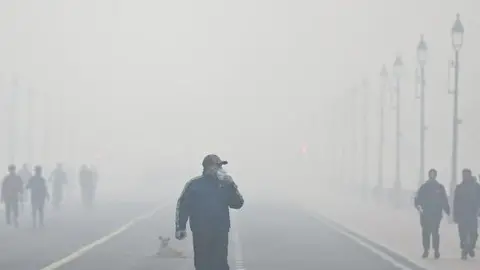
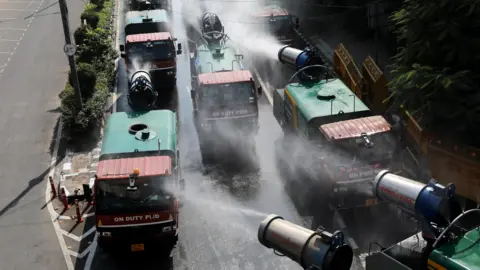
Covering this story feels like watching (and being in) the same dystopian film every year – following the same characters, plot and script. The outcome is always the same – nothing changes.
The parks are empty again – people, particularly children and the elderly, have been told to stay indoors.
Those who must work – daily-wage labourers, rickshaw pullers, delivery riders – are coughing but still going out.
Hospitals are seeing an increasing number of people coming in with respiratory problems.
And amid all this, we are back to the same question again – why does nothing change?
The simple answer is that solving Delhi’s air problem requires monumental efforts and coordination.
The sources of the problem are many. One of them is the practice of farmers burning crop remains to clear their fields quickly to sow seeds for the next yield.
This mostly happens in the neighbouring states of Punjab, Haryana and Uttar Pradesh. The smoke from the farm fires engulfs Delhi every winter and hangs low in the atmosphere as wind speeds reduce during winter months.
But farmers can’t be entirely blamed for this because this is the cheapest way of clearing fields.
Different governments have talked about providing machines and financial incentives to stop crop burning, but very little has happened on the ground.
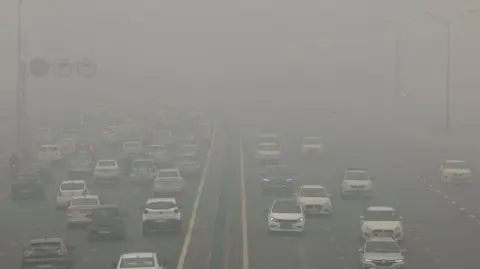
Delhi itself produces a huge chunk of the pollution – emission from vehicles, construction and factories.
Every year, in the winter months, people get angry, journalists write and produce reports, politicians blame each other and courts fume – until we do it all over again the next year.
A public health emergency like this would spark mass protests in most democracies. But the anger in Delhi is mostly limited to social media.
Activists say the reason is that pollution doesn’t cause immediate problems for most people. Ingesting high levels of PM2.5 deteriorates health slowly. A Lancet study found that pollution led to more than 2.3 million premature deaths in India in 2019.
And then there is the class divide. People who can afford to temporarily leave the city do that, those who can buy air purifiers do that, and those who can vent on social media do that.
The rest, who don’t have these options, just go about their lives.
The collective angst has so far not resulted in a massive protest and, as the Supreme Court once observed, politicians just “pass the buck” and wait for the season to get over.
Experts say governments at the federal level and in different states need to leave their party politics behind and work together to solve this problem. They need to focus on long-term solutions.
And citizens need to hold politicians accountable and courts have to pass decisive orders months before the pollution worsens.
This year, we are again in the thick of the season and temporary measures have been announced, like banning construction work.
But can these bring Delhi’s elusive blue skies back? The evidence from the past few years doesn’t give much hope.
[BBC]
-
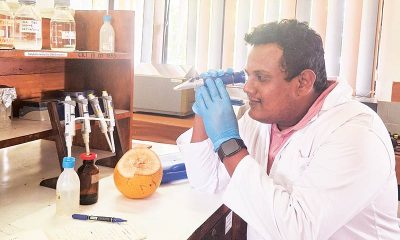
 Life style5 days ago
Life style5 days agoKing of coconuts heads for a golden future
-
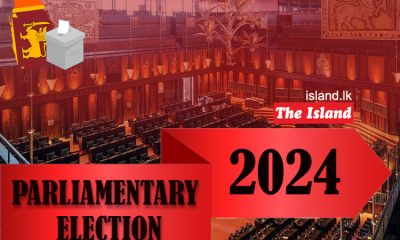
 Latest News6 days ago
Latest News6 days agoColombo district preferential votes announced
-
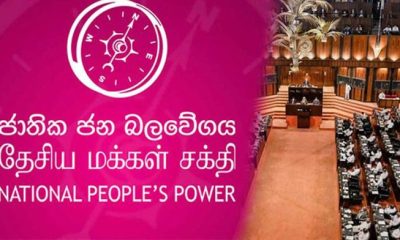
 News4 days ago
News4 days agoNPP appoints two defeated candidates as NL MPs
-
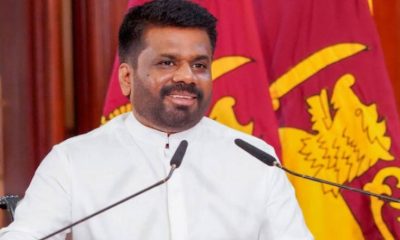
 News6 days ago
News6 days agoPresident warns his party: “We will fail if we view power as an entitlement to do as we please”
-
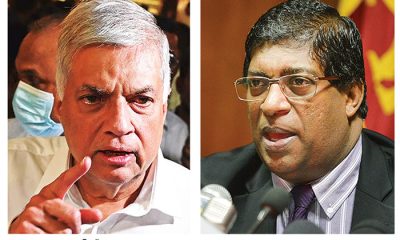
 News3 days ago
News3 days ago‘Gas Cylinder’ explodes; Ranil flays NDF Secy. for submitting Ravi’s name
-
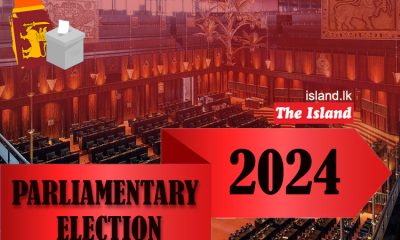
 Latest News7 days ago
Latest News7 days agoGampaha district: NPP 16, SJB 3
-

 Sports3 days ago
Sports3 days agoMaking batting compulsory for bowlers has worked – Theekshana
-

 Editorial6 days ago
Editorial6 days ago‘Maroon Wave’ and AKD Magic











